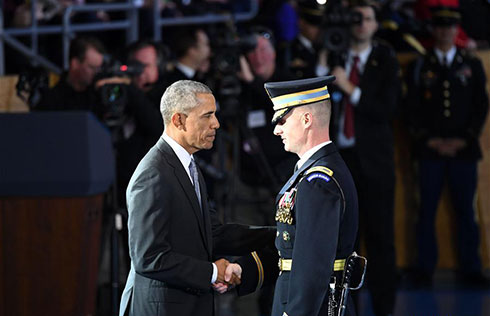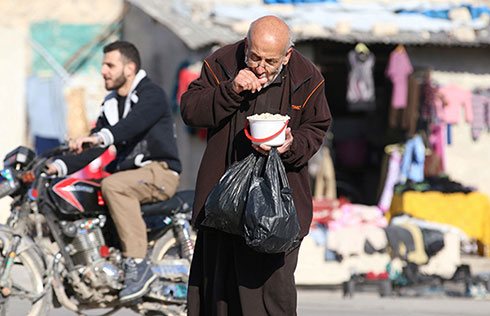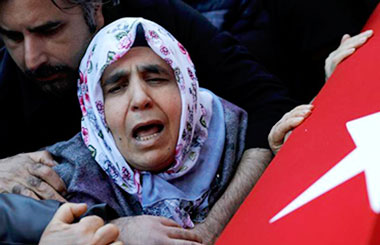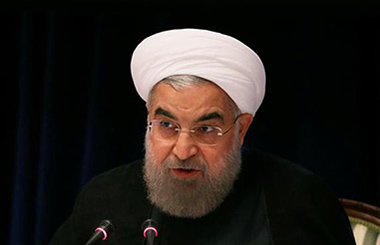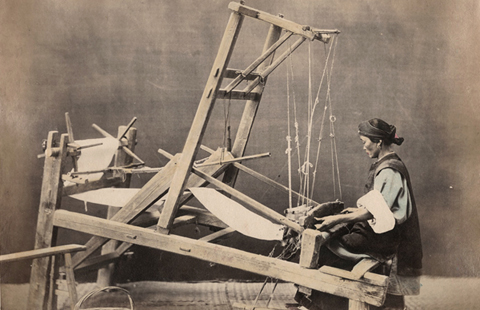Turkey continues manhunt for New Year nightclub attacker
ANKARA/ISTANBUL - The Turkish police have detained the wife of the Istanbul nightclub attacker who is still on the run three days after killing 39 people celebrating the New Year.
IHA news agency said on Tuesday the gunman came to Turkey from Kyrgyzstan on Nov 20 with his wife and two children, and the wife was detained in the central Anatolian city of Konya.
According to IHA report, the wife told the police that she learned the attack from television reports and she had no information about his husband being an Islamic State (IS) sympathizer.
The militant group on Monday claimed responsibility for the assault on Reina nightclub in central Istanbul, in which the gunman opened fire at hundreds of people at the New Year's party, killing 39, with 25 identified as foreign nationals, and injuring 69 others, with four discharged from hospital till now.
As the manhunt was continuing, Turkish Deputy Prime Minister Numan Kurtulmus, following a cabinet meeting in Ankara on Monday, said police had got the fingerprints and descriptions of the attacker.
Kurtulmus claimed that the Turkish authorities would soon be able to identify the attacker and "reveal the power behind him."
A total of 12 suspects have been detained in Istanbul over their suspected links to the nightclub attack, press reports said.
On Tuesday, a video showing the suspect taking a selfie as he silently toured Istanbul's most famous square -- Taksim Square was released by state-run Anadolu television and other Turkish media. However, it was not immediately clear if the video was made before or after the New Year's massacre, or how it was obtained.
Abdullah Agar, a security analyst, said the deadly attack was carried out to derange the balance in Turkey, spoil the country's ongoing struggle against terror organizations outside of its territory, disturb the society's fragility even further, or have Turkey pay a price for its increasing cooperation with Russia.
Turkey has been hit by around 30 bombing attacks over the past one and a half years, in which more than 400 people had lost their lives, prompting calls for steps to revamp the intelligence units and reduce polarization in society to better counter the scourge of terrorism.
Ankara has blamed the terror attacks on its soil mostly on the outlawed Kurdistan Workers' Party (PKK) and the IS that is wreaking havoc in neighboring Iraq and Syria.
Turkey has launched an offensive to northern Syria since August in hopes of clearing a strategic border area of IS militants and stemming the gains of Kurdish fighters. Turkish jets regularly bomb IS targets in the Syrian town of al-Bab in support of Syrian opposition forces try to re-capture it from the extremists.
Following the attack, President Recep Tayyip Erdogan said in a written statement "We are aware that these attacks carried out by different terrorist organizations targeting our citizens are not independent from incidents happening in our region," "We are determined to destroy the attacks and threats against our country from its root."
Prime Minister Binali Yildirim, after visiting the injured in a hospital, spoke of Turkey's continuing battle against the PKK, the IS and the group led by Fethullah Gulen, a Turkish cleric living in the United States and leader of the so-called Gulen Movement now branded as a terror group by Ankara for Gulen's alleged role in directing the coup attempt in July 2016.
Also on Tuesday, the Turkish parliament approved a motion to extend by another three months the state of emergency imposed in the wake of the July 15 failed coup against President Erdogan.
Under the emergency rule, which had already been prolonged once before and was due to expire on Jan. 19, the government can bypass the parliament to enact new laws and limit or suspend rights and freedoms.
Meanwhile, a bill to change the Turkey's constitution will be submitted to the General Assembly on Jan. 9 and is expected to be approved by the end of the month. The bill grants extended power to the president and allows the president to remain the head of his or her political party.
The Turkish government said it would put the constitutional changes to a referendum, even if the proposals had gained enough support to pass through the parliament.






